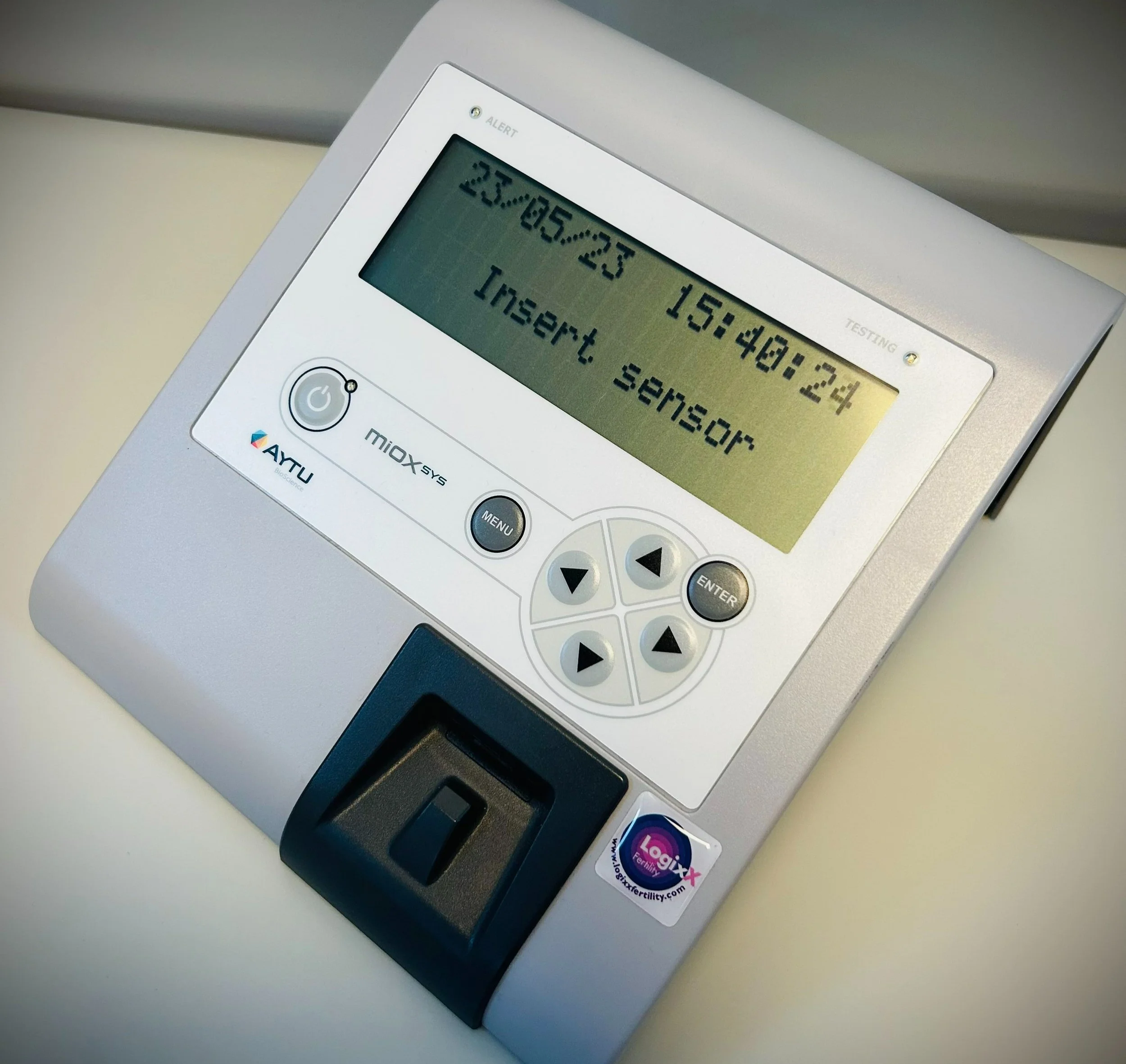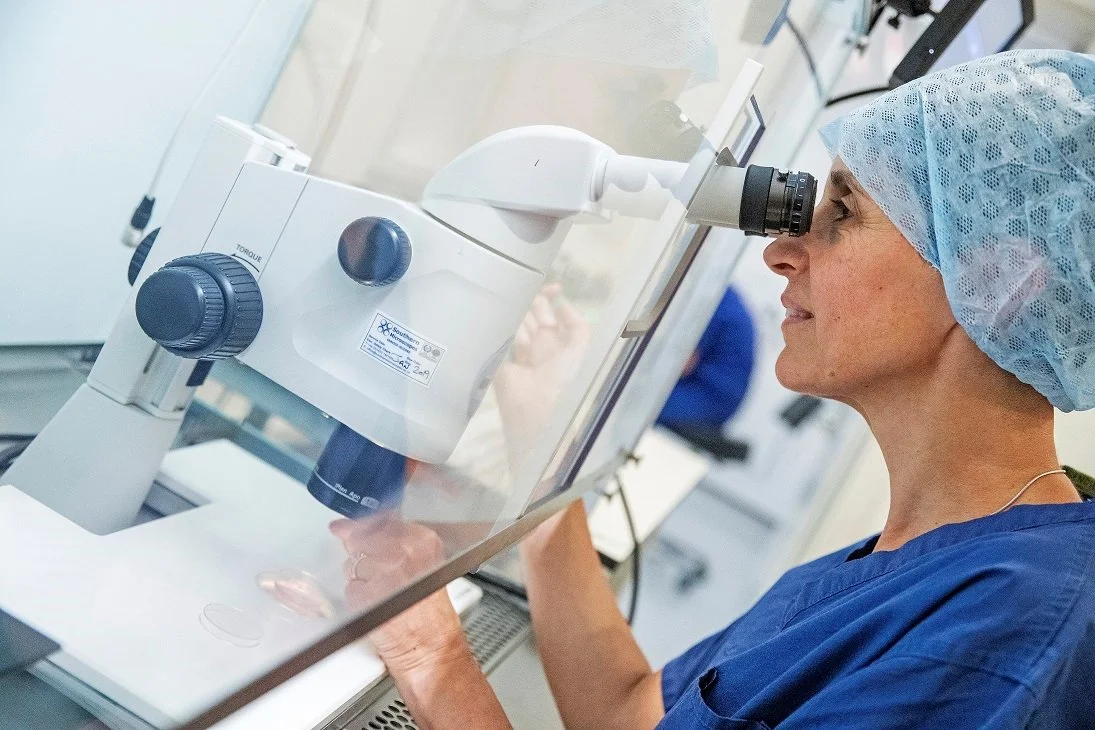The availability of a new device that allows unprecedented processing of sperm for use in fertility treatment has been hailed by trainee embryologist Lucy Hill as an exciting development for would-be parents struggling to achieve their dream of having a baby.
Lucy Hill, who works at Bristol Centre for Reproductive Medicine (BCRM) on the Scientist Training Programme, said: “Although most people will have heard of some of the reproductive technology procedures we use, such as IVF, what’s less well known is that in 50% of all cases when a couple experiences difficulties conceiving a baby, sperm abnormalities are a contributing factor.
“So before we start any fertility treatment it’s important to assess the progressive motility of the man’s sperm, checking for efficient movement toward their target, rather than swimming aimlessly which would lessen or rule out the chance of achieving a successful pregnancy.
“Sperm analysis is already routinely offered, but BCRM has now secured access to the ZyMōt Multi Sperm Separation Device, a groundbreaking new sperm sorting chip which separates the progressively motile sperm intended for use in IVF, ICSI, IUI and other procedures.”
Lucy Hill said: “The ZyMot device mimics how sperm naturally travel through the female reproductive system and separates the best quality sperm for use in treatment, isolating healthy sperm with progressive motility where DNA is tightly packed and intact, which is what is needed for fertilisation and embryo development.
“ZyMōt is classified as a treatment add-on, and because it is a relatively new technology, awaiting a critical mass of independent clinical evidence and reviews, our industry regulator the Human Fertilisation and Embryology Authority (HFEA) has not yet included it in the rating system it uses to evaluate the effectiveness and safety of various fertility treatment add-ons.”
Karla Turner, senior andrologist and lead for BCRM Andrology Services said: “Because Lucy has nevertheless identified that some studies have shown Zymot to offer promising results for reducing DNA fragmentation and increasing pregnancy rates, we are pleased to be offering this analysis as an optional extra to patients for whom it could prove useful.”
BCRM www.fertilitybristol.com is the longest established fertility clinic in Bristol, helping people from throughout the South West and Wales with fertility treatment for both private and NHS patients. The clinic is involved in innovative research and has one of the best success rates with IVF and other fertility treatments in the UK.





